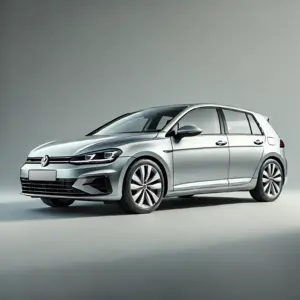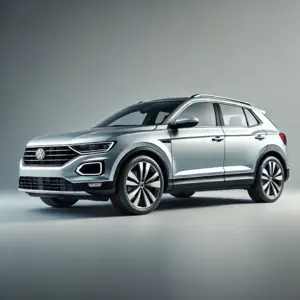Ford Puma used • 6,401 cars price-checked by AutoUncle
Market overview: Prices range from £12,399 to £23,945 across all listings
Featured deals
Price checked by AutoUncle
Super price
Good price
Fair price
A bit pricey
Expensive
Featured deals
Featured deals
Featured deals
How much does the Ford Puma depreciate?
Used Ford Puma
A used Ford Puma (2023) model loses about £290 per month in value.
Factors that affect the depreciation of a Ford Puma:
- Mileage driven
- Maintenance
- Service history
Depreciation is an important part of calculating the total cost of owning a Ford Puma. In addition to the monthly depreciation of £290, you should also factor in fuel costs, road tax, insurance and maintenance (including tyres and car washes) to get the full monthly cost.
How much does a used Ford Puma cost? Prices, ratings and depreciation by model year
Model year | Typical price range* | Average price | Price trend / depreciation | Cars for sale |
|---|---|---|---|---|
2025 Ford Puma | £19,799 - £29,732 | £22,944 | +£2,380 | 648 |
2024 Ford Puma | £15,900 - £25,598 | £20,807 | -£1,940 | 791 |
2023 Ford Puma | £13,625 - £21,299 | £17,146 | -£3,480 | 2,524 |
2022 Ford Puma | £12,495 - £19,195 | £15,777 | -£1,480 | 1,279 |
2021 Ford Puma | £10,890 - £17,880 | £14,371 | -£1,300 | 602 |
2020 Ford Puma | £10,491 - £15,500 | £13,220 | -£1,400 | 548 |
2019 Ford Puma | £9,950 - £12,802 | £12,024 | - | 6 |
*The 'Typical price range' column shows the prices at the 5th and 95th percentiles of cars in the current market
The data is based on the cars currently listed on AutoUncle
Ford Puma (model year 2023) - Price development for the last 12 months and price projection for the next 6 months (November 2024 - April 2026)
Month | Average market price | Lowest market price | Highest market price | Calculation method |
|---|---|---|---|---|
| 2024 - November | £21,320 | £19,360 | £23,280 | Estimate |
| 2024 - December | £20,780↘ | £18,800 | £22,780 | Estimate |
| 2025 - January | £20,340↘ | £18,320 | £22,380 | Estimate |
| 2025 - February | £20,000↘ | £17,960 | £22,020 | Estimate |
| 2025 - March | £19,100↘ | £17,320 | £20,880 | Estimate |
| 2025 - April | £18,700↘ | £17,160 | £20,240 | Estimate |
| 2025 - May | £18,260↘ | £16,880 | £19,660 | Estimate |
| 2025 - June | £17,920↘ | £16,560 | £19,300 | Estimate |
| 2025 - July | £17,760↘ | £16,300 | £19,220 | Estimate |
| 2025 - August | £17,580↘ | £16,060 | £19,100 | Estimate |
| 2025 - September | £17,560↘ | £16,000 | £19,100 | Estimate |
| 2025 - October | £17,840↗ | £16,400 | £19,280 | Estimate |
| 2025 - December | £17,660↘ | - | - | Forecast |
| 2026 - January | £17,580↘ | - | - | Forecast |
| 2026 - February | £17,500↘ | - | - | Forecast |
| 2026 - March | £17,400↘ | - | - | Forecast |
| 2026 - April | £17,320↘ | - | - | Forecast |
All estimates and forecasts are based on actual market data
Average Monthly Depreciation
A summary of the past 12 and an estimation of the next 6 months.
Past 12 months
-£3,480
Next 6 months
-£520
Price checked by AutoUncle
Super price
Good price
Fair price
A bit pricey
Expensive
Are you looking for a used Ford Puma?
Are you thinking of getting a used SUV? The Ford Puma is a solid choice. In total, there are 149 used Ford Pumas for sale on AutoUncle in the UK, each one sourced from an online marketplace or dealership website.
What is the used car price of the Ford Puma?
The pricing range for a used Ford Puma model at AutoUncle will start at £12,990 and go up to £23,995.
A pre-owned Ford Puma is being offered at different prices determined by primarily five factors: year, engine capacity and performance, the car's fuel economy, mileage together with equipment level.
For instance, a car that is newer and has fewer miles on the clock will typically command a higher price. In the same vein, models at the higher end, replete with luxurious features or more robust engines, generally come with a more substantial price tag than, for example, an older model with more kilometres driven or with a lower equipment level.
Does the Ford Puma offer multiple trim lines?
Here is an overview of the most popular equipment variants for Ford Puma, sorted by number of cars for sale and their market price:
- Ford Puma ST-Line X: Right now you will find 69 cars for sale at an average price of £18,322
- Ford Puma ST-Line: Here you will find 43 cars for sale at an average price of £17,620
- Ford Puma Titanium: 28 cars for sale at an average price of £15,709
- Ford Puma ST: 8 cars for sale at an average price of £22,943
In which fuel variants is the Ford Puma offered?
The predominant fuel variant for the Ford Puma is plug-in hybrid.
Available fuel options:
- Ford Puma plug-in hybrid: 124 cars currently available with an average price of £18,254
- Ford Puma petrol: 25 cars currently available with an average price of £16,229
There are a few questions you should ask yourself when deciding on a fuel type. Do you only use your car to get to and from work? Is the distance less than roughly 35 miles each way?
Electric cars, plug-in hybrids and petrol are great for short distances. For long daily driving, electric cars are a strong choice if you can charge. For longer daily commutes, a modern electric car is often suitable - especially if you can charge at home or at work. Diesel cars may still be relevant in some cases with very long journeys and lack of charging options. Bear in mind that diesel engines emitting high levels of pollution are not allowed in cities in a number of countries.
The use of hybrid cars is on the rise
In the UK, the choice of hybrid vehicles stems from their fuel economy, lower emission levels compared to traditional autos, and the expanding network of charging points, coinciding with the nation's environmental strategies and economic incentives for green transport. The adoption of hybrid vehicles like the Ford Puma plays a significant role in the transformation towards more green and sustainable transport solutions.
Pros of acquiring a second-hand hybrid car
Many positives are associated with the selection of a used hybrid vehicle. Benefits such as:
Cost savings on purchase: Pre-owned hybrid vehicles typically come at a lower cost compared to new models. The decreased starting cost can make hybrid cars available to a larger pool of potential buyers.
Environmental benefits: Hybrids are less polluting than traditional fossil fuel cars. By choosing a used hybrid, you're reducing the environmental impact compared to buying a new car, due to the production process, mainly regarding the battery, carrying a carbon footprint.
Fuel efficiency: Hybrids are distinguished by their fuel efficiency, combining a petrol engine with an electric motor. This level of efficiency might yield substantial fuel cost savings over an extended period.
Technological features: Advanced features are common even in earlier hybrid models, presenting a sophisticated driving experience.
Government incentives: In the UK, road tax is often lower for hybrid vehicles due to their lower CO2 emissions. In specific locales, notably central London, hybrids can qualify for diminished or non-existent congestion fees, based on their level of emissions.
What body types is the Ford Puma available in?
SUV is a favourite among drivers of the Ford Puma. Sport Utility Vehicles, or SUVs, are some of the most popular cars on the market today, thanks to their versatile style and elevated ride height.
What is the price difference between Ford Puma with different body styles?
- Ford Puma suv: 84 cars - average price £16,909
- Ford Puma hatchback: 59 cars - average price £19,002
- Ford Puma coupe: 1 car - average price £21,500
Are there alternatives to Ford Puma?
Several vehicles that are similar to the Ford Puma are available.
Popular alternatives to the Ford Puma
- Nissan Qashqai
- Kia Sportage
- VW Tiguan
The best alternative to the Ford Puma is the Nissan Qashqai. It has an average sales price of £16,400 and right now you can find 10,964 of this car for sale on AutoUncle.
The Kia Sportage is another popular pick, with 7,280 cars currently for sale and an average price of £19,998. Another good choice for an alternative car is the VW Tiguan with 6,180 cars for sale for the average price of £22,197.
All body types for Ford Puma
All regions for Ford Puma
- Bedfordshire (36)
- Berkshire (74)
- Buckinghamshire (43)
- Cambridgeshire (763)
- Cheshire (202)
- Cumbria (83)
- Derbyshire (164)
- Devon (28)
- Dorset (41)
- Durham (70)
- East Sussex (60)
- East Yorkshire (64)
- Essex (318)
- Gloucestershire (108)
- Hampshire (162)
- Hertfordshire (243)
- Kent (197)
- Lancashire (161)
- Leicestershire (146)
- Lincolnshire (79)
- London (587)
- Manchester (280)
- Merseyside (109)
- Norfolk (138)
- Northamptonshire (102)
- Northumberland (64)
- North Yorkshire (130)
- Nottinghamshire (91)
- Oxfordshire (22)
- Shropshire (680)
- Somerset (43)
- South Yorkshire (172)
- Staffordshire (166)
- Suffolk (133)
- Surrey (95)
- Tyne and Wear (119)
- Warwickshire (64)
- West Midlands (273)
- West Sussex (668)
- West Yorkshire (218)
- Wiltshire (56)
- Worcestershire (46)


















